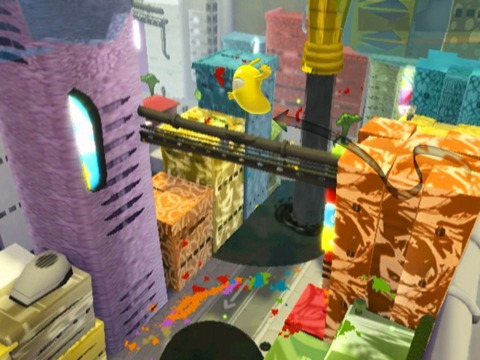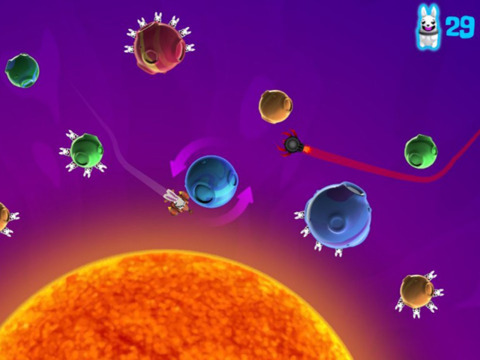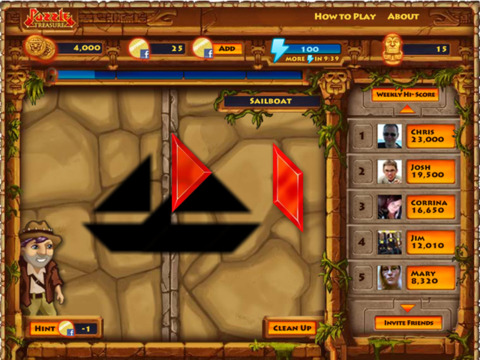The State of the Aussie Game Development Industry in 2012
In the wake of THQ's studio closures in Brisbane and Melbourne, GameSpot AU investigates the path forward for the Australian game development industry.

The State of the Industry
Fortitude Valley, Queensland. Four years ago, this suburb functioned as the central nervous system of the tight-knit Australian game development industry. Employees of the five big studios--THQ, Krome, Pandemic, Auran, and The Creative Assembly--all worked within walking distance of one another. It was an extraordinary period of growth, wherein contracts to build licensed games for overseas publishers were relatively easy for development houses to secure, and to profit from. Studio executives, developers, and the Queensland government's "Smart State" flag wavers toasted each other's success.
One by one, these companies were faced with insurmountable difficulties: new IP failing to attract adequate market attention; cost reductions by overseas headquarters; and licensed game contracts drying up, due to a rising Australian dollar. In early August 2011, another death knell sounded across the community: THQ's sudden "right-sizing" saw the shuttering of its Brisbane and Melbourne studios, resulting in the loss of around 200 jobs. Less than a year ago, Krome Studios--once the country's largest independent game development company, home to more than 400 employees across three cities--ground to a halt.
Around 40 of Krome's best talent were kept on and quietly folded under the banner of KMM Brisbane, a local arm of Kennedy Miller Mitchell's Sydney-based animation and development studio. Yet, recent online rumours suggest that once KMM Brisbane's current project, Happy Feet 2, is completed, the studio's lights will be switched off. (GameSpot AU contacted a KMM Brisbane producer for comment, but they would not respond; an anonymous source said that four artists were laid off in the first week of August, that "most" would be laid off at the end of the month, and that "a core few" would stay until October, when the game ships.) Once again, some of this country's most experienced and talented developers will return to an ever-contracting job market.
On the first floor of an unremarkable office building, on the corner of Fortitude Valley's Warner and Wickham streets, sits Sega Studios Australia, an 80-strong outfit that was known as The Creative Assembly until June 2011. They're deep into the development of London 2012, an Olympic Games tie-in for the Xbox 360, PlayStation 3, and PC. The walls are adorned with interesting artwork and materials that can't be described, due to the nondisclosure agreement signed upon entry.
"We're now the biggest developer in Brisbane, and probably Australia," says Gareth Gower, director of studio marketing. "We've got a bit of a responsibility to nurture as much talent as possible, and help the industry that way." They've got only two vacancies at the moment, both high-level positions: studio art director and senior engine programmer.
"It's brutal. Absolutely brutal," says studio director Marcus Fielding of the job market. He held the same role at Krome at the time of its closure in late 2010. "I'm seeing people at the local gym who can't believe it's happened again. They're asking the question of me, 'Is Sega secure?' All I can do is work really hard to ensure that we are secure."
Of the studio's 80 employees, 60 are full time; the other 20 are contractors, mostly animators. Fielding introduced GameSpot AU to several staff from a range of disciplines. Senior environment artist Chris Conte began his career with online gambling developer Eyecon in 2004 and then spent nearly five years with Krome and, later, KMM Brisbane. Senior animator Adam Dowley started with Ratbag Games, an Adelaide-based outfit that was acquired by Midway Games in 2005. After being closed by Midway, Krome rehired many of Ratbag's staff and established Krome Studios Adelaide before eventually closing the doors in August 2010.
"It throws your entire life into disarray," recalls Dowley of the closure. "When Krome went down, I'd just bought a house in Adelaide."
"I'd just bought a house here in Brisbane, too," says Conte. "It's scary. It puts you in a mind-set where you don't know what's going to happen. I think we're pretty good here at Sega, but there's always that thought at the back of my mind now: 'What happens at the end of this game?' It'll be there probably for the rest of my career, now; once we get to wrap-up time, what's going to happen? Are we going to be able to do another project?"
"It's a fear that's in the back of every developer's mind," says technical director Mark Rowley. "As an industry, it's far more fragile than most."
"The problem is that people are very specialised in this industry," adds Dowley. "They don't have skill sets that are applicable to other industries. Game designers; where can they go? I can animate; how do I use that outside of games or film?"
"You've specialised yourself for the love of the job," replies Rowley.
"You love it so much that you've kind of doomed yourself!" concludes the senior animator. He and his colleagues laugh knowingly.
The Government Stance
GameSpot AU met with Queensland government representative Mark Fludder, 18 floors above the Brisbane CBD. He is the principal project officer at the Information Industries Bureau, as part of the Department of Employment, Economic Development and Innovation (DEEDI). It's a confusing jumble of words; basically, he looks after clients within the realm of information and communication technologies (ICT), under which "digital content"--formerly known as "gaming"--sits. Although digital content accounts for only a small slice of his project duties, Fludder is knowledgeable and enthusiastic when speaking about the local game development industry.
"This isn't a result of people in Australia being unable to do a job," he says, reflecting on the recent THQ announcement. "It's a result of a worldwide corporation struggling to reinvent itself in a new world. As they do that, things happen. And, unfortunately, when you're the frontier land--which is what we are--we're the ones that get cut first. This doesn't say 'Australians can't make games' or that we don't do it well. I just think we've been doing the wrong stuff for us. We've seen, with the mobile developers, that if we find the right stuff, we do it really well."
He makes an interesting point that in terms of pure profit--in other words, the part that the Queensland government tends to pay the most attention to--"the Australian game industry has probably made more in the last 12 months than at any other time in its history. What Firemint has been able to do [with its range of mobile games], what Halfbrick's been doing [with Fruit Ninja, among others]--they've probably made more profit than any of these studios ever made for their corporate headquarters." Fludder regrets that the local industry has been "rushed" into adapting to an industry that consists of a galaxy of smaller studios, rather than a handful of big ones.
"They're very hollow words if you lost your job at THQ last week, or if you were at Krome, or if you're about to come out of uni," he admits. "THQ is where you were expecting to have a better-than-average chance of getting a job [as a uni graduate]. I don't know what to offer them now, other than to say: I think now is the best time and future for Australian game development if we build it right. We've really got an opportunity to be self-determinant, where, in the past, we haven't been. If we're building an industry where we'll live and die on our own performance, I'd rather live in that world, as it's far more sustainable."

A Future in Education
A few blocks over, Qantm College staff meet with GameSpot AU on campus: namely, the 10th floor of the Albert Street tower that houses the digital media educator's Brisbane facilities. Dr Luke McMillan--academic coordinator for this campus and senior lecturer of game design nationwide--stresses that Qantm trains for an international market.
"Just because there's been a downturn in the studio model locally doesn't mean that that radically affects our curriculum," he says. "It does affect the curriculum [somewhat], but we need to keep that global mind-set in perspective. We always tell students that it's naive to think they're going to be working where they studied for the rest of their lives. It's the nature of the industry: you have to move where the work goes. We make it very clear that the industry fluctuates."
Senior lecturer in games programming Dr Ricky Ohl has coordinated students' internships since he started at Qantm Brisbane in January 2008. Surprisingly, he reveals that they had no such arrangement with THQ, as the studio "wanted a 12-month commitment from students doing internships. Our program places students for 10 weeks, so we didn't engage them in that way."
Reflecting on the near-complete demise of local console game development houses, Dr McMillan makes the cute analogy that studios are like orchestras ("they're put together from the best of the best, to perform other people's works") and that independent developers are like bands ("of the people, for the people"). Evidently, there's less demand for orchestras in the current economic climate.
"I think the reason why indie developers are picking up steam at the moment is because a lot of people can identify more with them," he says. "I think it started with companies like Treasure, and we're seeing it now with Halfbrick. We're seeing a move away from games having an individual identity, and, rather, developers having an identity and a mantra that all of their games abide by."
Halfbrick's marketing director, Phil Larsen, tells GameSpot AU that the company--which, at 45 staff is believed to be Queensland's second-biggest game development employer, behind Sega--is "always looking for talented folks, and are currently searching for concept artists, as well as interns in design, programming, and art disciplines."
Although the indie development aesthetic and ethos is not for everyone, it's looking as though Australian game developers not employed by the few remaining large-scale studios are left with three choices: leave the country and compete on the international job market, leave games entirely in favour of another career, or embrace indie games.
Morgan Jaffit of Brisbane-based Defiant Development chose the third option, after spending nearly two years at Montreal-based A2M Games (now known as Behaviour Interactive) in the mid 2000s and returning to Pandemic Studios as associate creative director until May 2009. Defiant, a small team of Fortitude Valley-based "grizzled industry veterans" fluctuates between six and 10 employees, depending on their workload. They're all contract staff, including director and cofounder Jaffit.
"The whole reason Defiant was set up is because I wanted to be able to offer people jobs," he says. "All of my best-case scenarios are the ones where we can hire people on long-term projects that keep them employed and give jobs to the great people we have in Brisbane. There's an extraordinary amount of value in this town; if you go to San Francisco right now, you can't hire an ex-games person for love or money, because they're all working for the social games studios that have sucked up every human within radius for exorbitant salaries, because that's where the growth is. There's no equivalent here. I'm hoping to see that happen, but it's very hard to talk people around with the [Australian] dollar where it is."
Would the industry benefit if there were more local publishers? At the moment, there's just the one: Gold Coast-based N3V Games, formerly known as Auran. "No, because we make games for the global market," replies Jaffit. "We always have. Australian distribution is a very small percentage of our market. Even if we had local publishers, they'd still want to get people in Romania to make the games, because it'd be half the price. That said, you can never underestimate the value of being able to go down the road and have a beer with the guy who's responsible for sorting out where projects go."
When Jaffit entered the industry in 2000, he found that 20 people could ship a game. He still believes that 20 is a "sweet spot" for game development.
"It's a great number of people to build and ship games. Don't get me wrong; Hollywood blockbuster games with 200-plus people are not going anywhere. They make way too much money for that part of the business to go away. But we're seeing real opportunities across the rest of the business." He refers to studios like Halfbrick, 3 Blokes, and Defiant as "new sprouts among the rubble." For Defiant, the way out of the rubble is "creating projects that have their own value, and their own IP, and build jobs. We just have to build each project so that it scales to the next one, so that we've got enough revenue streams to be stable at 20 people."
These sprouts aren't confined to Brisbane, either. Chris Watts, founder of Melbourne-based Play-Bit Entertainment, worked as a level designer at THQ's Blue Tongue studio "pretty much from the start of de Blob until the preproduction of de Blob 2; around two and a half years. It was a really good time. I went off to pursue my own goals in design and started doing the indie thing. I've been doing that for nearly three years," Watts reflects.
"I got more and more serious until the point we're at now, where I've got a proprietary limited company, and I've got a Facebook game that's being funded by Film Victoria. It takes some bravery to go out and be your own boss, but it's not the most terrifying thing in the world, as long as you've got the competence to be adaptable, know when a good thing happens, and roll with it."
Andrew McMillen (@NiteShok) is a Brisbane-based freelance journalist. http://andrewmcmillen.com/
Got a news tip or want to contact us directly? Email news@gamespot.com




Join the conversation